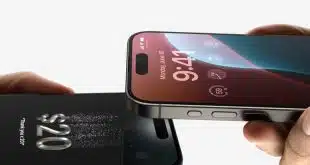Here's one way credit card issuers could win back some popularity in an increasingly debit card world: make credit cards function like debit cards. That's the essence of a new product from processor Total System Services Inc. (TSYS), which last week unveiled its TSYS Hybrid card. The patent-pending product enables customers of the Columbus, Ga.-based processor's client financial institutions to have a single credit card that draws funding from up to five demand-deposit accounts?three checking and two savings. By linking one or more DDAs to the credit card account, consumers can set preferences online and more easily control the amounts they want to revolve and the amounts they want to pay off quickly, Sarah Hartman, TSYS senior director of payment solutions, tells Digital Transactions News. “It's really a way to help our issuers differentiate themselves and also [is] a way to meet a consumer need,” she says. That consumer need is to pay for more purchases right away rather than revolve balances, and to automate functions cardholders now do manually, according to Hartman. Partly on their own volition, partly because of a new risk aversion by burned issuers, and partly as a result of new federal credit card regulations, consumers are carrying around tens of millions fewer credit cards than they did even two years ago, and their credit lines have been reduced by billions of dollars. But debit cards continue to grow (Digital Transactions News, Feb. 4). Credit's contraction is bad news for TSYS, which has sizable merchant-processing and international operations but whose core customers remain U.S. credit card issuers. Furthermore, issuers aren't shy about shopping for the best processing deals, which crimps the margins of TSYS and rival processors such as First Data Corp. In reporting its fourth-quarter earnings last month, TSYS said “2010 is going to be a challenging year,” with total revenues down 2% to 4% from 2009's levels and income from continuing operations falling 14% to 15%. One new product won't make TSYS slide through those headwinds, but the hybrid card might give the company and its issuer clients a tool to tap the new consumer frugality. “Consumers are electing to pay more now,” says Hartman. “This enables them to go ahead and use their credit card and make those payments for those things they want to pay now.” To use the card, a consumer would go online to a dedicated Web site and register the routing and transit numbers of the DDAs he wants to use to fund the credit account. Then he could elect which types of merchants he wants to pay right away, and also set transaction thresholds for immediate or later payment. For example, any grocery-store purchase of under $100 charged to the credit card could be programmed to initiate an automated clearing house debit of a designated DDA and pay off the purchase immediately. Or, consumers could designate certain merchant categories or transaction amounts above a threshold to always be designated for later payment and funded by a particular DDA. Preferences can be changed at any time. All purchases are authorized and settled under normal credit card operating protocols. TSYS has not announced any issuers of the hybrid product yet. “We're talking with a couple of issuers,” says Hartman. TSYS says it's the first processor it knows of to offer such a hybrid product, but other companies are putting their own spins on the idea of mixing various forms of electronic payments. Verient Inc., a startup company with technology to secure online PIN-debit transactions, also is recruiting card issuers to use its platform for letting cardholders design customized accounts (Digital Transactions News, July 9, 2009). In another development aimed at overcoming barriers in the payments world, Amsterdam-based Gemalto NV last week unveiled its so-called World Traveler program for U.S. card issuers. The program enables issuers to offer their customers dual-interface cards with an EMV microprocessor chip, enabling Americans to use their cards in countries where the EMV chip rather than the traditional magnetic stripe holds the account data. While not invulnerable, the EMV chip is much more secure than the mag stripe, and the U.S. is now the only major industrialized country that has not adopted or announced plans to adopt it. That's led to increasing reports of Americans having trouble using their mag-stripe cards abroad.
Check Also
P2P Brands Can Gain Wallet Share Despite Consumers’ Loyalty to a Primary Brand, J.D. Power Finds
While consumers remain extremely loyal to their primary peer-to-peer payment brand, opportunities exist for other …




